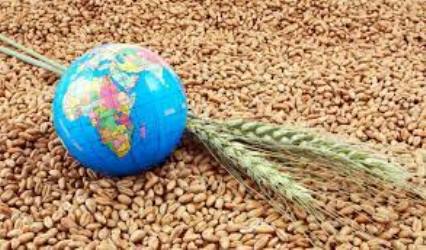The Federal government has expressed its support to collaborate with Bangladesh in agro-farming to boost the bilateral relations between both countries.
A statement by Mrs. Anthonia Eremah, Chief Information Officer, Federal Ministry of Agriculture and Rural Development, said the Permanent Secretary of the Ministry, Dr. Ernest Umakhihe, stated this at a symposium on Monday in Abuja.
Umakhihe said the partnership would enhance self-sufficiency in food, and job creation, amongst others.
The theme of the symposium is: “Promoting agro-farming for the trade and investments to promote sustainable and inclusive development; opportunities for Nigeria and Bangladesh.’’
The permanent secretary was represented at the event by the Director, of Special Duties, Ministry of Agriculture, Mrs Fausat Lawal.
Umakhihe said that the agriculture sector played a vital role in the overall economic performance of both countries, as it would promote the agricultural market of agro-products and establish linkages with the global agro-supply chain.
He said that agriculture held great potential for Nigeria’s economic development along with crude oil.
The permanent secretary said that Nigeria relied on the agricultural products it exported to generate one of its national revenues.
Umakhihe said that the sector enjoyed many potentials that included relatively abundant arable land for crop cultivation.
He said the country’s population represented a large domestic market that could support and sustain local production and processing.
Umakhihe said that the current global food crisis and long-standing challenges in the agricultural sector made it clear that more investments were needed in Nigeria’s agricultural sector.
“It is on the record that the impacts of climate change, insecurity, the Covid-19 pandemic, and the Russia-Ukraine conflict have had an adverse effect on agricultural production in Nigeria and Africa generally,” he said.
The Bangladesh High Commissioner to Nigeria, Masudur Rahman, said that Bangladesh was predominantly an agricultural country where the government played a proactive role in accelerating economic growth.
He said that the agriculture sector had been given the highest priority to make it self-sufficient in food production and security.
Rahman said that Bangladesh Government was determined to develop the overall agricultural sector by aligning the goals set out with their plans such as the National Agricultural Policy 2018.
The other plans are “the National Food Policy and Sustainable Development goals program being implemented to improve the economy.”
The National President of the Nigerian Association of Chambers of Commerce, Industry, Mines and Agriculture (NACCIMA), Mr. Dele Oye, said that the objective was to create an avenue for the exchange of ideas.
Oye, who was represented by Farouk Suleiman, said that it was also to establish trade partnerships that would drive mutual prosperity and sustainable development.
He said there were enormous opportunities for promoting agro farming and sustainability between both countries.
Oye said Nigeria and Bangladesh had abundant raw materials that could support the development of agribusiness.
He said that despite the opportunities for agro-farming and business in both countries, the challenges in infrastructure, financing, and regulation should be addressed.


